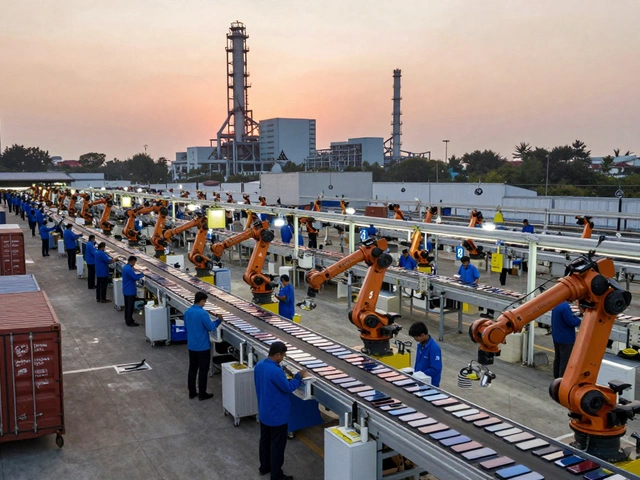How to Start and Grow a Small Scale Industry in 2025
If you’ve ever thought about turning a workshop idea into a real factory, you’re in the right place. A small scale industry can be your ticket to steady income, local jobs, and even export opportunities. The good news? You don’t need a massive campus or a huge budget—just a clear plan, the right permits, and a willingness to learn.
Pick the Right Product and Market
The first decision that makes or breaks your venture is the product you’ll make. Look for items that have steady demand but aren’t flooded with competitors. In 2025, things like eco‑friendly packaging, modular furniture, and niche food items are hot. Check local market reports, talk to potential buyers, and test a small batch before committing to large‑scale production.
Also, think about where you’ll sell: local retailers, online platforms, or B2B contracts. A clear sales channel helps you size your plant, choose machines, and calculate cash flow.
Secure Licenses, Finance, and the Right Space
India’s industrial rules can feel like a maze, but they’re manageable if you follow a checklist. Most small scale units need a factory license, GST registration, and industry‑specific clearances (for food, chemicals, etc.). Visit your state’s MSME portal—most forms are online and often free.
Financing is the next hurdle. Bank loans, government schemes, and micro‑finance institutions all offer capital for MSMEs. Prepare a simple business plan with projected costs, break‑even analysis, and repayment schedule. A solid plan improves your chances of getting a loan.
When picking a location, prioritize accessibility to raw materials, power supply, and transportation routes. A modest warehouse on the outskirts of a city can give you space to expand without breaking the bank.
Once you have the space, invest in machines that match your production volume. For a small unit, semi‑automatic equipment often balances cost and efficiency. Keep an eye on energy consumption—saving a few kilowatts can lower operating costs dramatically.
Don’t forget quality control. Even a tiny factory can adopt basic testing methods to ensure each batch meets standards. This builds trust with buyers and reduces waste.
Finally, market your product early. Use social media, local trade fairs, and partnerships with distributors. Show off your story—many customers love buying from a home‑grown, sustainable business.
Running a small scale industry is a learning curve, but with the right product, proper licensing, smart financing, and a clear market strategy, you can turn a modest workshop into a thriving manufacturing hub. Keep tweaking your processes, listen to customer feedback, and stay on top of industry trends. Your small factory could be the next big thing in India’s manufacturing story.
What Are the Characteristics of a Small Scale Industry?
Small scale industries are local, low-cost, and highly adaptable manufacturing units that rely on manual labor, niche products, and community ties. They form the backbone of employment in developing economies and thrive on flexibility, not scale.
Read MoreWhat Is Considered a Small Scale Industry?
Small scale industries are vital components of local economies, providing employment opportunities and driving innovation. They typically involve limited investment and handle small production quantities. This article explores what constitutes a small scale industry, how they operate, and the benefits they bring to communities. It's a helpful guide for anyone interested in starting or understanding these types of businesses.
Read MoreExploring the Challenges of Small-Scale Manufacturing Industries
The small-scale industry sector plays a crucial role in the economic development of a nation. However, these industries face several challenges that can hinder their growth and operational efficiency. From limited access to capital to technological constraints, these impediments can significantly impact productivity and innovation. Identifying these weaknesses is vital for businesses to strategize effectively and sustain in competitive environments.
Read MoreStarting a Small Scale Manufacturing Industry: Step-by-Step Guide
Launching a small-scale manufacturing business can be an exciting venture that offers numerous opportunities for growth and innovation. This article guides aspiring entrepreneurs through the critical steps required to establish a successful small manufacturing industry. From understanding market demand and financial planning to selecting the right equipment and ensuring quality control, it covers essential aspects that every business owner should consider. By providing practical insights and actionable tips, this guide helps turn entrepreneurial dreams into reality in the manufacturing sector.
Read More





